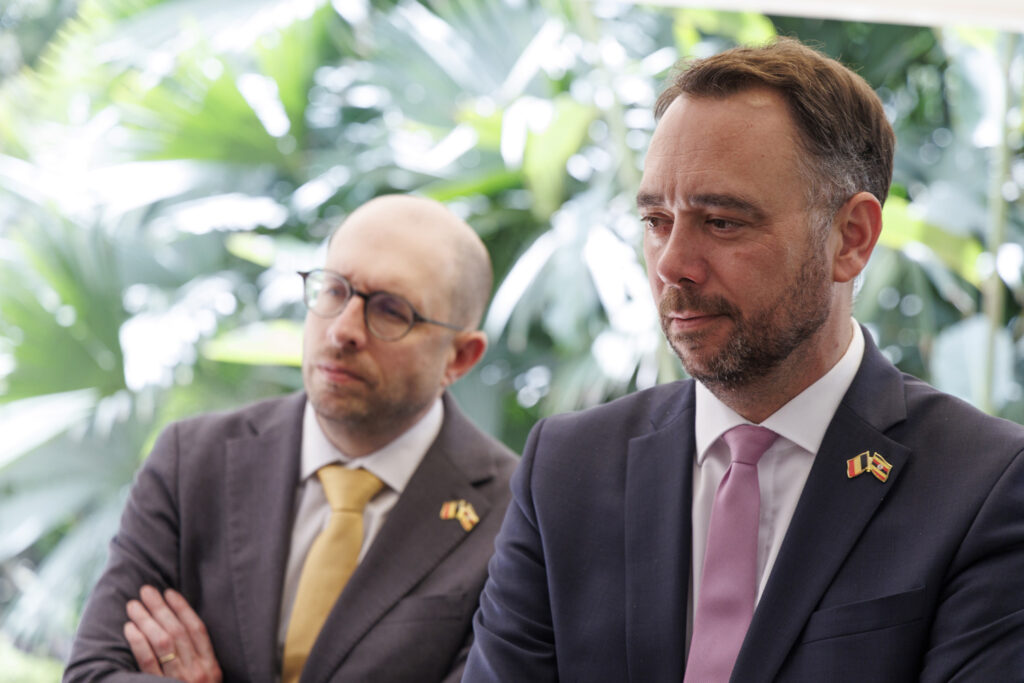Tom Vanneste, country director of Belgian development agency Enabel, issued a call, during a speech in Kampala, Uganda, on Friday, for a shift in mentality in international development cooperation.
Vanneste stressed the need for less ‘naivety’ and ‘paternalism’ and more ‘win-win’ scenarios and balanced partnerships. He mentioned that the Belgian government stands to benefit from supporting potential Belgian investors in Uganda, following the successful example of their Dutch neighbours.
“We don’t want our funding to be seen as charity like Santa Claus, but as an investment aimed at results,” Vanneste stated during the Uganda leg of a visit by Foreign Affairs and Development Cooperation Minister Maxime Prévot to Africa’s Great Lakes Region.
Several critical minerals, such as cobalt and tungsten
Prévot had departed on Thursday night from Melsbroek Air Base for his first solo work visit to the Great Lakes, which will also take him to Burundi, and the Democratic Republic of Congo, where conflicts in the east of the country have escalated recently.
In addition to the usual diplomatic contacts and official meetings, such trips highlight local projects supported by Enabel, which has been active in Uganda for 20 years and directly employs 220 people. Counting subcontractors, Enabel is one of the “major employers,” Tom Vanneste said.
Uganda’s official economy urgently needs jobs. Every year, 600,000 young people finish their studies, but only about 10% secure paid employment. Around 41% of young people are NEET—not in education, employment, or training—and for millions, the main daily challenge is survival.
Uganda, like its Congolese neighbour, has several valuable critical minerals, such as cobalt and tungsten, some of which are in the early stages of exploitation, the Enabel chief highlighted. This presents opportunities for investment and the creation of high-quality jobs for the local population. “We also need to consider our own interests,” added Vanneste.
'We can become more efficient'
Enabel hopes its actions will be an asset for Belgian companies present in the region or seeking to establish themselves there, despite acknowledged risks such as corruption, lack of access to finance, and shortage of local skills.
Surprisingly, Vanneste is not displeased with the drastic 25% reduction in the development cooperation budget planned by the Belgian government. “We can become more efficient,” he argued. Sometimes, we need a shock to ask ourselves, ‘how can we do better with the same budget?’
“We must not remain paternalistic. Besides, if we do not invest, the Chinese will. Ugandans also want a fair partnership and the shock might assist in achieving that,” he concluded.

